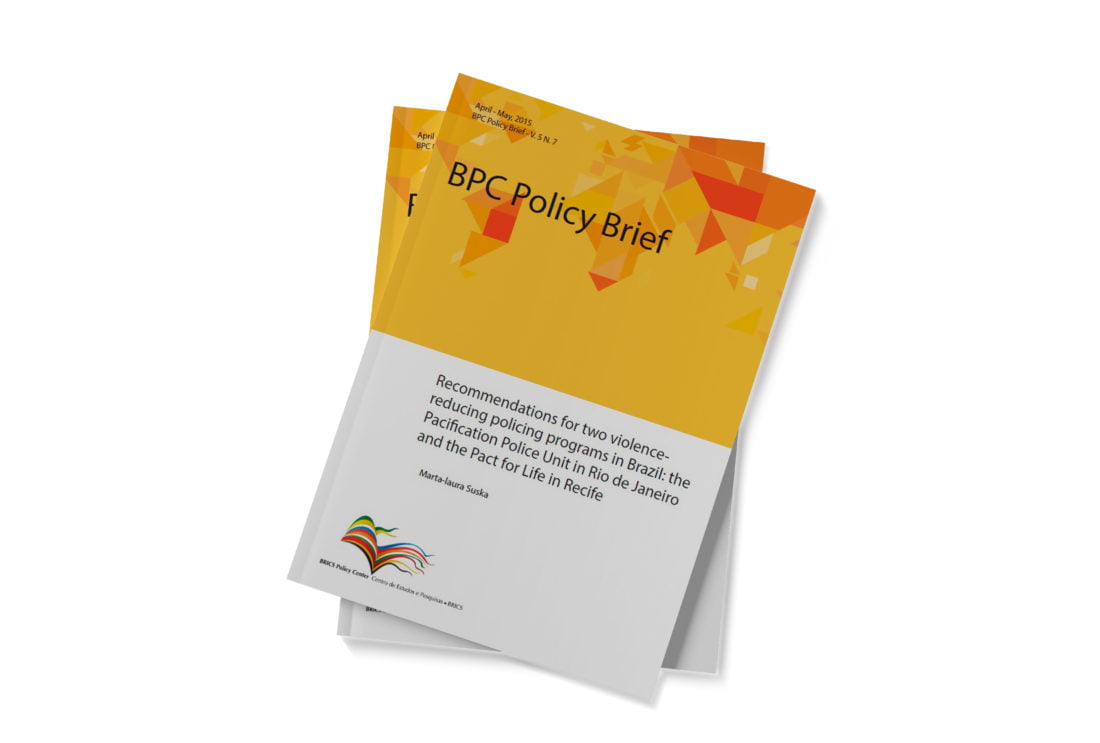
Recommendations for two violence reducing policing programs in Brazil: the Pacification Police Unit in Rio de Janeiro and the Pact for Life in Recife
Innovative but polemic policing programs, such as the Pacification Police Units in Rio and the Pact for Life in Recife, have achieved vast decrease in homicide rates. The positive results of such programs are encouraging, as they show clearly that improved public safety through policing programs is possible. But they also suffer from institutional weakness, lack of federal support, and low civil collaboration. I argue that successful public security depends on three factors: political backing, police commitment, and community cooperation. To strengthen these variables, policymakers need to institutionalize and formalize state security programs, invest in and improve child protection, and drastically improve work conditions for public security agents.

